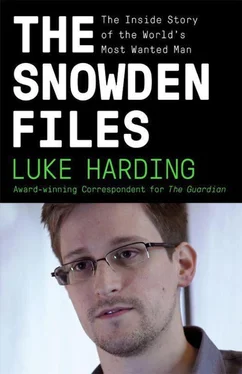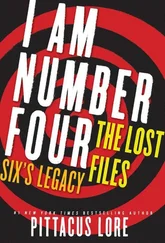European parliamentarians voted for tough new rules on data privacy. Their aim was to stop EU data collected by firms like Google, Yahoo or Microsoft from ending up in the NSA’s servers. The proposal, an explicit push-back against PRISM, envisaged restricting the sharing of EU information with non-EU countries. It also proposed the right of EU citizens to erase their digital records from the internet, as well as big fines for firms that broke the rules.
The measure had dropped out of the original proposal made by the European Commission in 2012, following US lobbying. The US argued these new regulations were bad for business. Silicon Valley agreed. But the accusations of NSA spying hardened the mood in the European camp, giving impetus to those who wanted reform. (In the end Britain came to the US’s rescue, with Cameron persuading EU allies to postpone any new rules until 2015.)
The EU’s response was part of a wider post-Snowden trend to ‘de-Americanise’ the internet. Already, in 2012, countries including Russia, China and several Middle Eastern states had made moves to bring cyberspace under greater domestic control. Now, the Europeans and Latin Americans were going in the same direction. Brazil and Germany began work on a resolution in the UN’s general assembly to place boundaries on NSA spying.
The new buzzword was ‘cyber-sovereignty’. The shared goal among the US’s disgruntled allies was to make it harder for the NSA to get access to national data. For authoritarian countries such as Russia, there was an added bonus. Greater state control of the internet made it easier to snoop on their own citizens and keep a lid on dissent.
The most vociferous reaction came from Brazil. In October, Rousseff announced plans to build a new undersea cable linking South America with Europe. This would, in theory, shut out the US and make it harder for the NSA to siphon off Brazilian information. The president also mulled over legislation that would force Google and other US tech giants to store the data for Brazilian users on local servers. Thousands of federal workers, meanwhile, were ordered to adopt a form of highly encrypted email. The policy was accelerated after Snowden’s disclosures.
Some experts doubted the effectiveness of Brazil’s fight-back. They pointed out that, unless Brazil came up with a rival to Google, the NSA would still be able to get hold of its data – if necessary by court order. Either way, Snowden’s disclosures seemed to have triggered what Google’s CEO Eric Schmidt dubbed the ‘Balkanization’ of the internet. What was supposed to be a universal tool was in danger of becoming fragmented and ‘country-specific’, he warned.
In Germany, state-backed Deutsche Telekom floated plans for a new national internet network. Its slogan, ‘Email made in Germany’, suggested consumers could have the same confidence in their email as they would expect to have in a German dishwasher. Emails between German users would no longer go via US servers. Traffic, mostly, would be kept within the EU’s Schengen area (which, helpfully, excluded Britain). The aspiration was to keep out the nosy Anglophone spies.
Perhaps the most unexpected corollary of the Snowden affair was the return of the typewriter. After discovering that the NSA bugged its diplomats, the Indian government turned to old technology. From the summer of 2013 the Indian High Commission in London began using typewriters again. Nothing top secret was stored in electronic form, high commissioner Jaimini Bhagwati told the Times of India . Diplomats had taken to strolling outside: ‘No highly classified information is discussed inside the embassy building. And it’s very tedious to step out into the garden every time something sensitive has to be discussed.’
The Russians had reached the same conclusion. The Kremlin’s super-secret Federal Protection Service (FSO) – a branch of the FSB, that some believe is guarding Snowden – put in a large order for typewriters.
The personal computer revolution that transformed communications had crashed to a halt. Those who cared about privacy were reverting to the pre-internet age. Typewriters, handwritten notes and the surreptitious rendezvous were back in fashion. Surely it was only a matter of time before the return of the carrier pigeon.
The NSA’s clumsy international spying operation generated much heat and light. One document revealed the agency was even spying on the pornographic viewing habits of six Muslim ‘radicalisers’, in an attempt to discredit them. None of the radicalisers were actually terrorists. The snooping – on individuals’ private browsing activities – was redolent of the kind of unjustified surveillance that led to the original Church committee.
There was a distinct sense of history repeating itself. Some old hands suggested that the US had been engaged in similar activities for decades.
Claus Arndt, a former German deputy responsible for overseeing Germany’s security services, saw echoes of previous scandals in the current Snowden one. Arndt told Der Spiegel that up until 1968 the US had behaved in West Germany like the occupying power they once had been – bugging whomever they wanted. After that, the Americans had to ask permission from German officials to conduct surveillance. In West Berlin, however, the US behaved ‘as if it had just marched in’ up until 1990, Arndt said. He recalled how one US major had a row with his girlfriend and gave an order for her phone to be tapped and her letters read. Arndt said he had had no choice but to agree the request.
What about the US’s modern methods? Arndt said indiscriminate collection was ineffective, and that evaluating a vast ‘data-heap’ was virtually impossible. Nevertheless, the Americans had always been ‘crazy about information’, he said, and were still ‘hegemons’ in his own country.
He summed up the impact of the Snowden revelations in a single phrase: ‘Theoretically we are sovereign. In practice we are not.’
New York Times office,
Eighth Avenue, New York
Summer to Winter 2013
‘You come here often. #nsapickuplines’
JOKE ON TWITTER
The room is a glorified broom cupboard. A few paintings belonging to the late Arthur Sulzberger, Snr, are stacked against a wall. One print shows a newspaper man puffing on a cigar; above him are the words: ‘Big Brother is watching you’. (A note says Arthur will review the paintings ‘when he returns’. He died in 2012.) There are strip lights, a small table, a couple of chairs. No windows. On a metal shelf, boxes of cream-coloured envelopes. They belong to Arthur Sulzberger, Jr, – Arthur senior’s heir – and the current publisher of the New York Times . On the corridor outside are photos of the Times ’s Pulitzer Prize winners. They are a distinguished bunch. From the staff cafeteria comes the hum of intelligent chatter.
The offices of the New York Times are on Eighth Avenue, in midtown New York. The paper’s executive stationery cupboard was to play an unlikely role in the Snowden story. It was from here that the Guardian carried on its reporting of the NSA files, in partnership with the Times , after its London operation was shut down. The cupboard was pokey. It was also extremely secure. Access was highly restricted; there were guards, video cameras and other measures. Its location on US soil meant that the journalists who worked there felt they enjoyed something they didn’t have in London: the protection of the US constitution.
In the US, the Obama administration distanced itself from the destruction of the Guardian ’s hard drives – an act widely condemned by EU organisations, the rest of the world, and the UN’s special rapporteur on freedom of expression. Evidently, the White House wasn’t delighted by the Snowden revelations. But it understood the first amendment guaranteed press freedom. No such smashing up could happen in America, White House officials said.
Читать дальше












